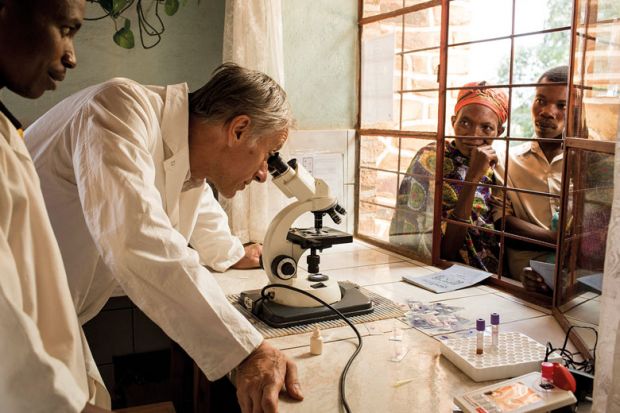Science is extraordinary. It is dynamic, transformative and powerful. It is also precious and fragile and could be lost. It is both inclusive and exclusive, expanding to every corner of the Earth, yet sidestepping much of the knowledge in active use. It is shared, beneficent and universal – and also freely manipulated as an instrument of commercial competition and a weapon of war. Science is good, bad and ugly. We need to accentuate the positive.
Today’s internationally networked science system, characterised by global journals and cross-border messaging and projects, is the result of the emergence of the World Wide Web in 1990. The two bibliometric systems, the Web of Science and Elsevier’s Scopus, followed, setting the boundaries of the valid and legitimate.
Whereas, in 1970, only 2 per cent of science papers were internationally co-authored, in 2020, shared papers peaked at 23 per cent of a Scopus-indexed output that, from 2003 to 2022, grew by an annual average of 5.4 per cent, doubling in volume every 13 years or so.
Capacity has spread way beyond the developed world. China is now the largest science producer, with just under 900,000 Scopus papers in 2022, compared with just over 450,000 from the US. India with just over 200,000 was the third biggest producer, ahead of Germany, the UK and Japan. South Korea, Brazil, Iran and Indonesia all have large fast-growing systems, too. The network is open. Newcomers gain access to vast resources and collaborate freely with anyone. The fastest-growing linkages are between researchers in new science countries.
Scientific knowledge is collective, collaborative and accumulative, a common good that, at its best, transcends the self-interests of individuals, institutions, companies and nations and thinks at the level of the world as a whole. In fields like climate science, artificial intelligence and coronaviruses, the global system integrates all scientists. Everyone is quickly aware of new discoveries.
Science can talk truth to power, cutting across all the fake news and manipulative populism. The reflexivity of science, its mode of judging itself, is the test of truth. All this is tremendously valuable.
But there is also the bad. Global science is post-colonial in capability but neocolonial in form. Although truth is not a Western monopoly, the design and conduct of science is almost exclusively Western. Journal editorship is skewed in favour of the top anglophone universities, with western Europe in second place and the rest at the margin. Scientific norms and protocols are as Western-dominated as they were before science capacity was pluralised by the web.
English, the mother tongue of only 7 per cent of the global population, is the only common language of science, but little effort is made to translate into it work done in other languages. Its exclusion from the global system renders a vast, diverse literature “non-scientific”, with only local meanings – exactly as happened to the knowledge of the colonised peoples. The excluded knowledge includes indigenous knowledge, with understandings of land, nature and ecology that are often more constructive than the relations with nature fostered by accumulative capitalism. We lose so much by blocking this diversity from sight.
Sadly, the blocking has not been the work of commercial exploiters. Nor can we blame repressive governments. It has been engineered by autonomous scientists themselves, working in collegial networks at leading universities, albeit aided and abetted by the publishing and bibliometric companies.
Then there’s the ugly side of science. Fossil fuel companies finance attacks on climate research, populist politicians attack science and universities, and geopolitics hurt cross-border cooperation.
The Russian invasion of Ukraine in February 2022 not only destroyed part of Ukraine’s scientific capacity, it forced many Russian scientists out of Russia and isolated those that remained. Meanwhile, the US is decoupling from China in science and technology to slow China’s rise. There has been a fall in co-authored papers, persecution of some scientists with ties in both countries, and fewer US visas for Chinese doctoral students. The US is pressuring other Western governments to follow suit. Cooperation with China is now subject to unprecedented securitisation, inhibiting the flow of ideas both ways.
So where do we go from here? We push for the further opening of science, not closure. We keep all the lines of cooperation as open as possible. No cold war in science! We defend the autonomy of global science from technological nationalism.
We also need to do what we can to break science out of the neocolonial shell and establish a fully global system. The ways forward to more democratic power relations in science are, first, genuine open access publishing – not fake “gold open access” where authors pay publishers – and, second, global scientific conversation in multiple languages. Publishers now have the software to translate knowledge into and out of English. There is no reason not to publish all the leading disciplinary journals and books, wherever they are from, in multiple languages.
In the face of global problems, knowledge and cooperation are all we have. That makes it essential to bring all the voices, all the different ways of seeing, all the insights and ideas, into the common conversation.
Simon Marginson is professor of higher education at the University of Oxford and the director of the ESRC Centre for Global Higher Education. This article is based on his CGHE Working Paper 109, “A Bird’s Eye View of Worldwide University Science”.
Register to continue
Why register?
- Registration is free and only takes a moment
- Once registered, you can read 3 articles a month
- Sign up for our newsletter
Subscribe
Or subscribe for unlimited access to:
- Unlimited access to news, views, insights & reviews
- Digital editions
- Digital access to THE’s university and college rankings analysis
Already registered or a current subscriber? Login








